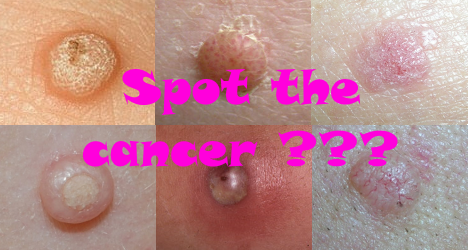Have you had coronavirus? UK COVID-19 antibody tests from £65
Comparison of UK mail and clinic tests, plus a review of the Medichecks test
Join the club for FREE to access the whole archive and other member benefits.
Today we are still a long way from precision medicine. I visited my GP this week, which I don’t do very often, so was interested to see how technology is coming along in primary healthcare. I was able to book my appointment online, and check-in at reception using a touch screen computer instead of queuing to speak to a receptionist. There was even a computerised board announcing which room to go to – all very nice efficiencies that no doubt save some staff costs.
But the consultation with the doctor was pretty much the same as I imagine it has been for a hundreds of years. He had a quick look at a small but ugly growth on my abdomen, asked a few questions (which relied on my very fallible memory of how long I had it, whether it had changed recently, etc) and said it looks like a wart. To quote him accurately, “we’ll assume it’s a wart until it’s something more serious.” Given the tools and time available there’s nothing else he could assume – in 99.9% of the cases he’s probably correct – but that 1 in a thousand times when it turns out to be something more serious this is a wasted opportunity of early diagnosis. The same scenario no doubt plays out hundreds of times a day in that one small medical practice for all sorts of complaints - the vast majority of symptoms of a common cold or viral infection will be exactly that.
But what if it my growth, or someone else’s nasty cough, does turn out to be a cancer? Not that I think it is, I’m just using it as a hypothetical case study. By the time it’s grown and metastasised the tumours may be too numerous to fight. And certainly any attempt to treat it will be lengthy and costly. Compare that to the cost If it was found early and treated immediately.

I’m not a doctor, but after reviewing dozens of images online of different types of skin infection I can see that rarely do two photos of the same condition look the same. There seems to be as much variation within a disease as between them. So in this modern technological age we shouldn’t be relying on highly-educated guesswork, we should have precision medicine that can accurately determine the root cause of symptoms. I’d hope by now that a quick swab, or a pin prick of blood, could be taken and within minutes it’s analysed to determine if there are antibodies or blood markers of serious disease.
We are getting close to this – recent news has included a sample-free laser test for malaria with results in 20 seconds, a single test that identifies all past virus infections and most recently a urine test that detects unique protein signatures of pancreatic cancer. It will probably start slowly, with quicker and cheaper tests for the most common diseases coming first. Then as technology prices reduce rarer conditions will also be able to be tested – just in case.
Eventually, in some utopian medical future, these tests won’t even have to wait until you have symptoms and decide to visit a doctor. Your daily routine will include a simple test carried out at home before breakfast to check for any developing problems before you are even aware of them. It may be even further in the future that we can cure any disease we find, but we will always have a better chance of doing that if we detect it in its very early stages.
Click on resource name for more details.
Longevity advocate - founder of the Live Forever Club and author of the Live Forever Manual
Virtual Bodies are Accelerating Research and Diagnostics
Under 44? Get ready to live forever!
Comparison of UK mail and clinic tests, plus a review of the Medichecks test
Do you know the difference between sensitivity and specificity?
Has a clever Autodoc chamber to diagnosis treat disease - would be surprising if it couldn't reverse ageing too by then
In the 2040s we could all have swarms of sensors monitoring every part of our bodies
Including nanoparticles for targeted drug delivery, nanofiber sensors, and personalized nerve cells